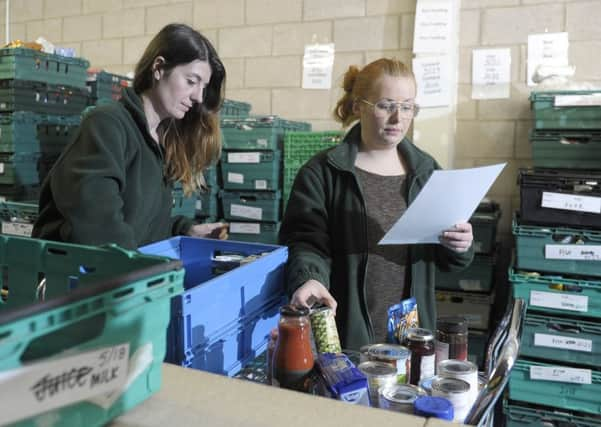Some Scots go days with nothing to eat, report warns


In-depth research into the issue found that for those suffering from the problem “going days without eating was a strikingly common experience”.
The Menu for Change group – which brings together campaigners from the Poverty Alliance, the Child Poverty Action Group in Scotland, Oxfam Scotland and Nourish – carried out what it said was the first research of its kind, taking a “longer and more holistic view of people’s circumstances to better understand the contexts in which severe food insecurity has emerged”.
Advertisement
Hide AdAdvertisement
Hide AdThree-quarters of those who took part in the study suffered from some form of mental ill health – with their lack of cash for food resulting in it being “not uncommon” for people to feel suicidal.
The report said: “Three-quarters of participants reported some form of mental ill-health, a finding that underscores the need to consider food insecurity as a public health emergency.”
One of the women interviewed, identified as Alison from Dundee, told researchers: “I felt suicidal more times than I had hot dinners, and that’s no joke.”
Food insecurity can range from worrying about running out of money for food, which is seen a mild form of the problem, through to skipping meals or cutting back on food, to more severe cases where people can go for days without eating.
The report found for many of those affected “a lack of money to buy food is one challenge amongst many” – noting they could also be dealing with health issues, homelessness, debt, bereavement or caring responsibilities.
The research found there was a “close relationship between financial difficulties, food insecurity and mental health”.
It added: “Food insecurity left interviewees and their children feeling lonely, excluded, anxious, depressed and at times even suicidal. “
The Found Wanting report looked at the lives of people in Dundee, East Ayrshire and Fife over the course of a year.
Advertisement
Hide AdAdvertisement
Hide AdThe “precarious nature” of zero-hours contracts and temporary jobs was a “key driver of food insecurity”, according to the research.
In addition, people moving on to Universal Credit from work or other benefits, and having to wait at least five weeks for a payment, was a “common trigger for severe food insecurity”.